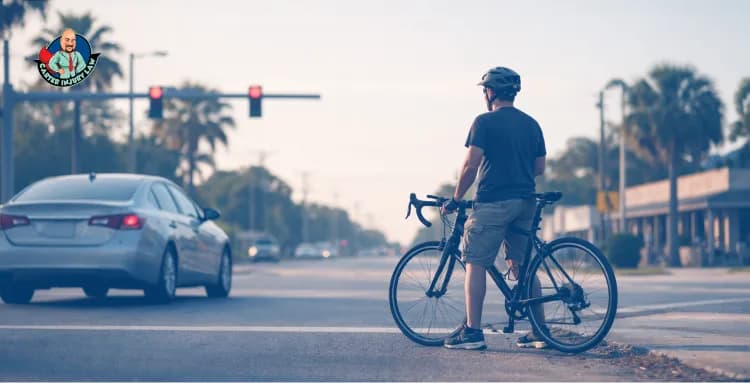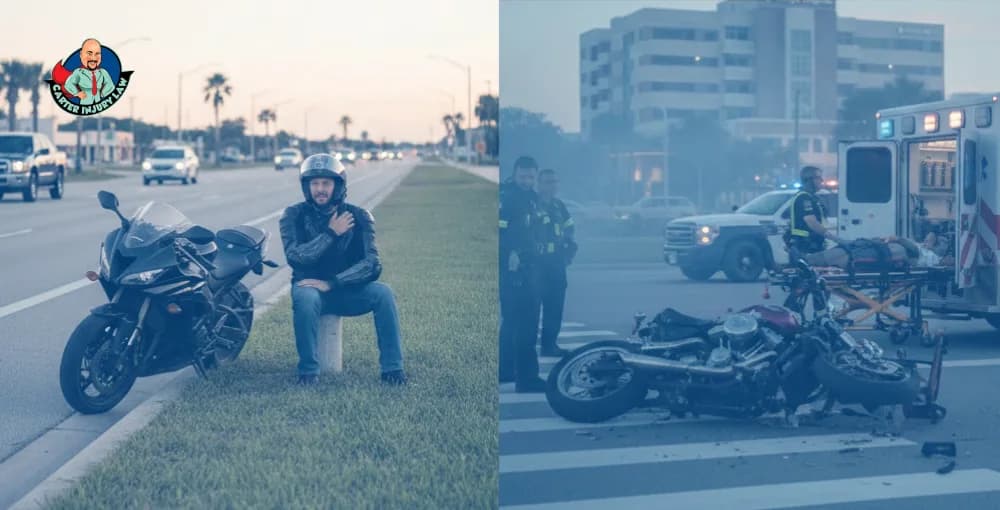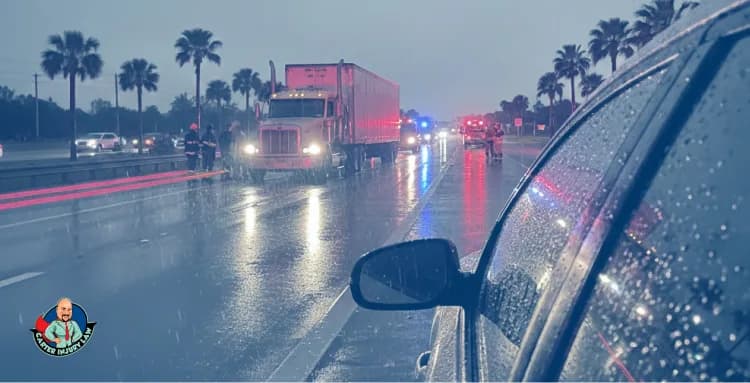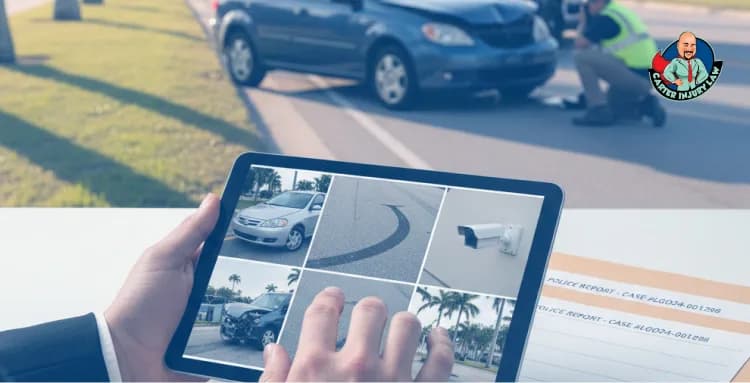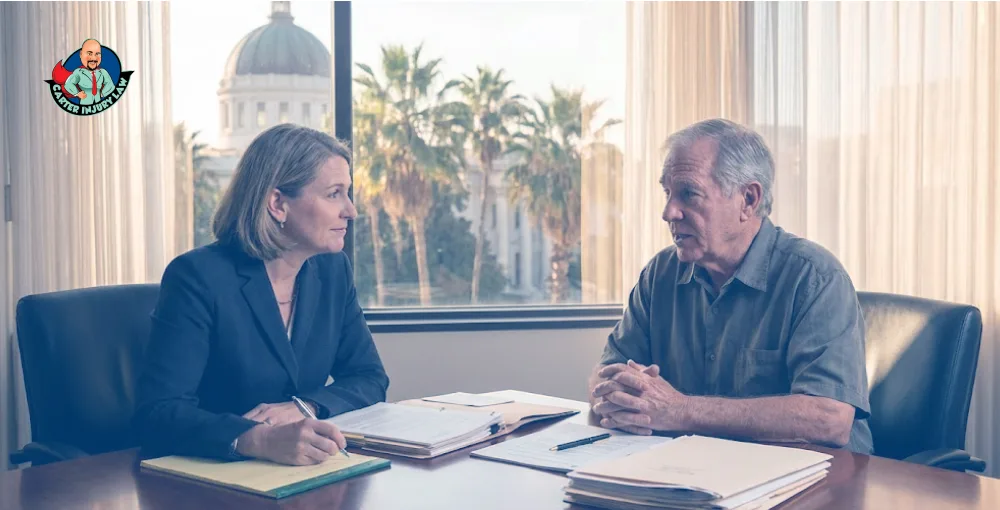Florida is beautiful, yet the weather has its own mind. A morning that starts sunny can suddenly become dangerous. A downpour, a gust of wind, and your RV might skid off course before you even notice. Most drivers believe they’re ready, but the truth is, even a small misstep behind the wheel of a big rig can change everything, for your safety and for the trouble the law may bring.
I’ve seen people “push through” storms, thinking they’re in control, only to end up with costly damages, denied insurance, and problems they never imagined. The real risk is how your choices will be judged when things go wrong. In Florida, the law doesn’t forgive carelessness, and weather is no excuse.
So, what should every RV driver really know before venturing into these unpredictable skies? And how easily can one moment of misjudgment become a legal trap that stays with you long after the rain stops?
(1) How Rain and Thunderstorms Can Make You Liable
Rainstorms in Florida are notorious for appearing out of the blue, and if you're not careful, driving an RV on wet roads is a surefire way to end badly. I’ve handled cases where drivers thought a light drizzle wasn’t a big deal, only to end up hydroplaning and causing accidents that could have been prevented.
Unlike a car, an RV’s size and weight make stopping quickly much harder. Tailgating, speeding, or ignoring worn tires is something a court or insurance company will notice. I’ve seen drivers get partial or full liability simply because they failed to adjust to the conditions.
One of the biggest mistakes I see is people thinking their experience behind the wheel is enough. Experience won’t save you if the road is slick and your RV is too heavy to maneuver safely. Slowing down, keeping extra distance, and checking tire tread before you hit the road are simple steps that can protect both your life and your legal standing.
Another common issue is underestimating visibility problems. Heavy rain can make it impossible for other drivers to see you, and if an accident occurs, courts often ask whether you took reasonable precautions to remain visible and in control.
(2) The Hidden Danger of High Winds for RV Drivers
Florida isn’t called the “Sunshine State” for nothing, but sunny days can quickly turn windy, especially during hurricane season. RVs are tall, heavy, and surprisingly vulnerable to gusts that can push you off course or even tip the vehicle. I’ve represented clients who underestimated a simple wind advisory, thinking it was just an inconvenience, and the results were flipped RVs, smashed trailers, and lives forever changed.
Even if the road is dry and visibility is perfect, a sudden gust can turn control into chaos. Courts look closely at whether a driver took reasonable precautions. Ignoring warnings or failing to slow down in high winds can make you partially or fully liable for an accident, no matter how careful you thought you were.
In my experience, the cases that worry me the most are the ones where drivers think weather only matters when it’s raining. Later, I’ll get into how flooding and road closures can raise the risk and liability and how skipping mechanical checks in Florida’s heat can turn a small problem into a big legal headache.
(3) Ignoring Flooding and Road Closures Warnings Can Cost You Big
Florida’s low-lying areas and sudden storms mean flooding can appear in minutes, turning familiar streets into dangerous waterways. I’ve represented clients who assumed a road looked shallow enough to cross, only to have their RV stalled, swept by currents, or involved in a collision. In these cases, liability often falls squarely on the driver because ignoring official warnings or road closures is seen as negligent behavior.
Even if no other vehicles are involved, insurance companies can deny claims if it’s clear the driver disregarded posted signs or emergency alerts. I always tell my clients, “No RV is worth the risk of a flood, and no claim is worth the fight if you choose to ignore the law’s warnings.” The moment a driver tries to power through a closed road, courts and insurance companies alike will scrutinize their decision.
Another often-overlooked factor is water damage to the RV itself. Engines, electrical systems, and brakes can fail after even a short submersion, creating hazards that extend beyond the initial flood. From a legal standpoint, these mechanical failures can compound liability if they contribute to an accident or prevent safe evacuation.
Checking local advisories, having alternate routes mapped, and knowing high-risk areas are all steps that protect both your life and your legal standing. Now, let’s discuss another silent threat, Florida heat and its effect on RV mechanics.
(4) Heat, Sun, and Mechanical Risks
Florida heat is relentless, and it does more than make you sweat, it puts serious stress on your RV. Overheated engines, tire blowouts, and failing cooling systems are common problems I see in accident cases, and they often catch drivers off guard. Many accidents aren’t caused by driver error alone but the result of preventable mechanical failures.
I’ve represented clients whose trips went sideways because they skipped routine checks, thinking a minor issue wouldn’t matter. Courts take maintenance seriously, especially when a mechanical failure contributes to an accident. Ignoring engine temperature warnings, worn tires, or fluid levels can make a driver legally responsible in ways most people don’t expect.
Another overlooked factor is sun exposure on long trips. Prolonged heat can degrade tires and other critical components faster than many anticipate. Simple preventive steps like checking tire pressure, inspecting belts, and keeping fluids topped off are your first line of legal defense.
Let’s summarize the legal lessons from all these weather-related risks and explain how your choices, preparation, and awareness can protect you if an accident happens.
(5) Legal Lessons from Weather-Related RV Accidents
After years of handling RV accident cases, I can tell you the law doesn’t forgive inexperience or inattention, even if the weather surprises you. Every case I see reinforces that your decisions before and during an incident are scrutinized closely. Courts and insurance companies don’t just look at what happened, they also ask, “Did the driver act reasonably given the conditions?”
One of the hardest lessons for many drivers is understanding that preparation matters as much as reaction. Did you check the forecast? Were your tires and brakes in good shape? Did you avoid risky roads? Skipping these steps can shift liability onto your shoulders, even if someone else was partially at fault.
I also advise that documentations like photos of road conditions, service records for your RV, and notes about weather warnings can all demonstrate that you acted responsibly, which matters when insurance companies or courts review your case.
Finally, it’s about mindset. Florida’s weather is unpredictable, and assuming you can “power through” is a recipe for disaster, both legally and physically.
(6) Take Action Before It’s Too Late
I’ve seen too many people brush off Florida’s weather, thinking, “It won’t happen to me,” only to call me after an accident has already turned their life upside down. Don’t wait for a crash to realize the risks.
If you drive an RV in Florida, it’s easy to feel like the weather is out to get you, and sometimes it is. I can help you make sense of the rules, look at your situation clearly, and guide you through the mess when accidents happen.
With my contingency fee service, you don’t pay unless we win. That means you can focus on getting back to your life without worrying about money standing in the way.
Reach out today, or send a message online, before the storms turn what should be a simple trip into something you’ll be regretting for a long time.



